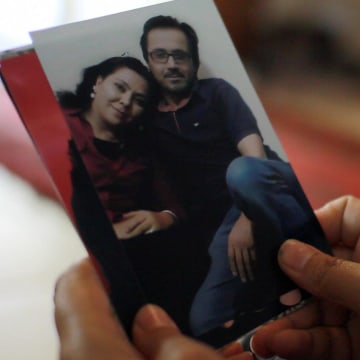A divided Supreme Court ruled Monday that U.S. immigration officials can deny entry to suspected terrorists without offering a detailed explanation, even at the cost of keeping a married couple oceans apart.
Three justices said denying a visa to a former Taliban civil servant in Afghanistan did not violate his wife's right to "life, liberty or property." Two others said that even if it did, sufficient reason was given for the denial. That combination from the court's conservative wing was enough to uphold the government's action on a 5-4 vote.
 |
| Fauzia Din at the Supreme Court in February. She argued the visa denial interfered with her fundamental right to marriage. Credit Jabin Botsford/NYT |
The case pitted a law designed to guard against terrorism against a married couple's desire to live together in the United States. In the end, the high court reversed a decision by the U.S. Court of Appeals for the 9th Circuit and upheld the action of U.S. immigration officials.
The case was brought by Fauzia Din, whose husband, Kanishka Berashk, was denied entry — presumably because of his past Taliban connections.
Justice Antonin Scalia wrote the plurality opinion for himself, Chief Justice John Roberts and Justice Clarence Thomas. He said Din retains the right to live in the United States or with her husband in Afghanistan but lacks the right to have both.
"She claims that the government denied her due process of law when, without adequate explanation of the reason for the visa denial, it deprived her of her constitutional right to live in the United States with her spouse," he said. "There is no such constitutional right."Read the rest of the story HERE.
If you like what you see, please "Like" us on Facebook either here or here. Please follow us on Twitter here.




No comments:
Post a Comment